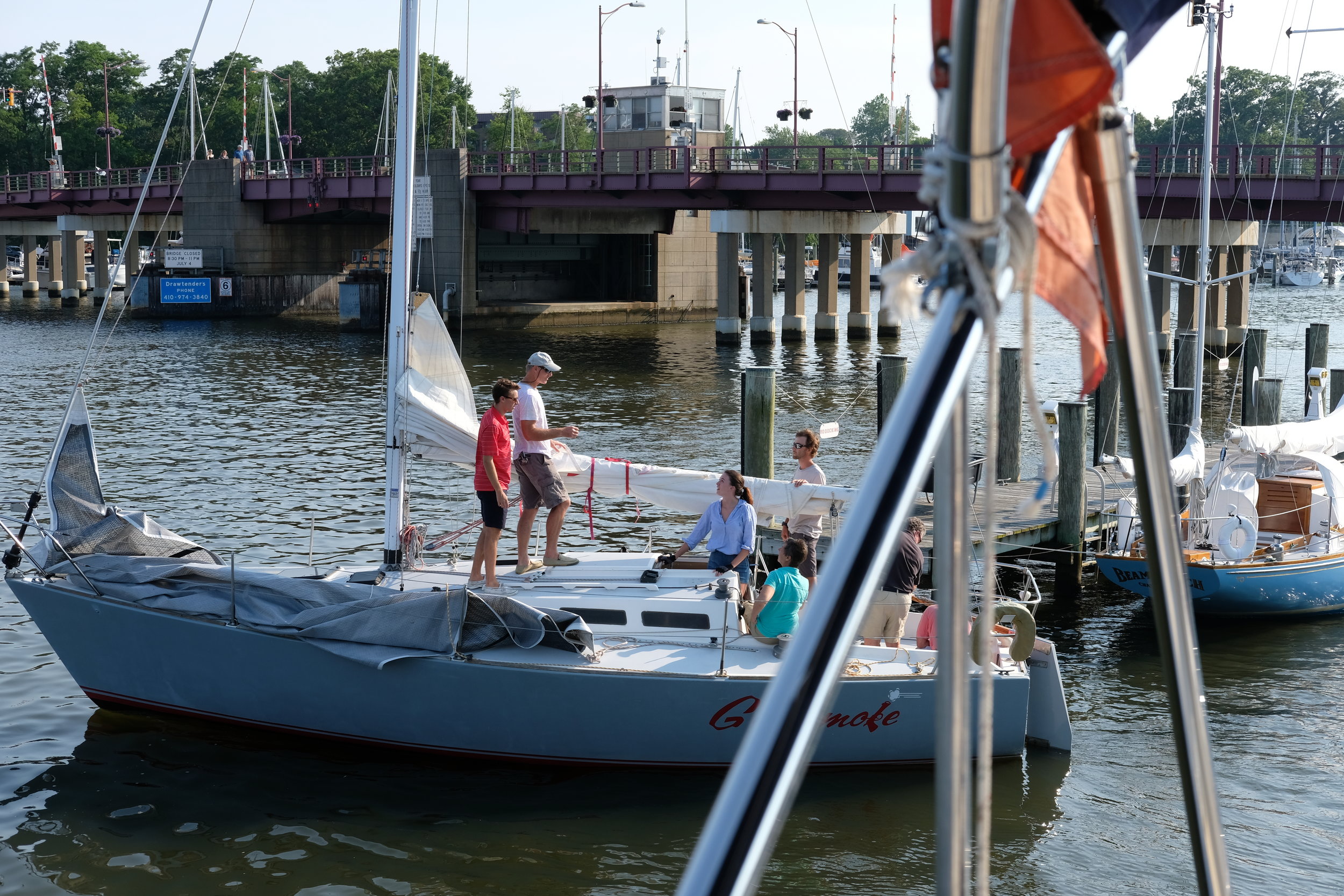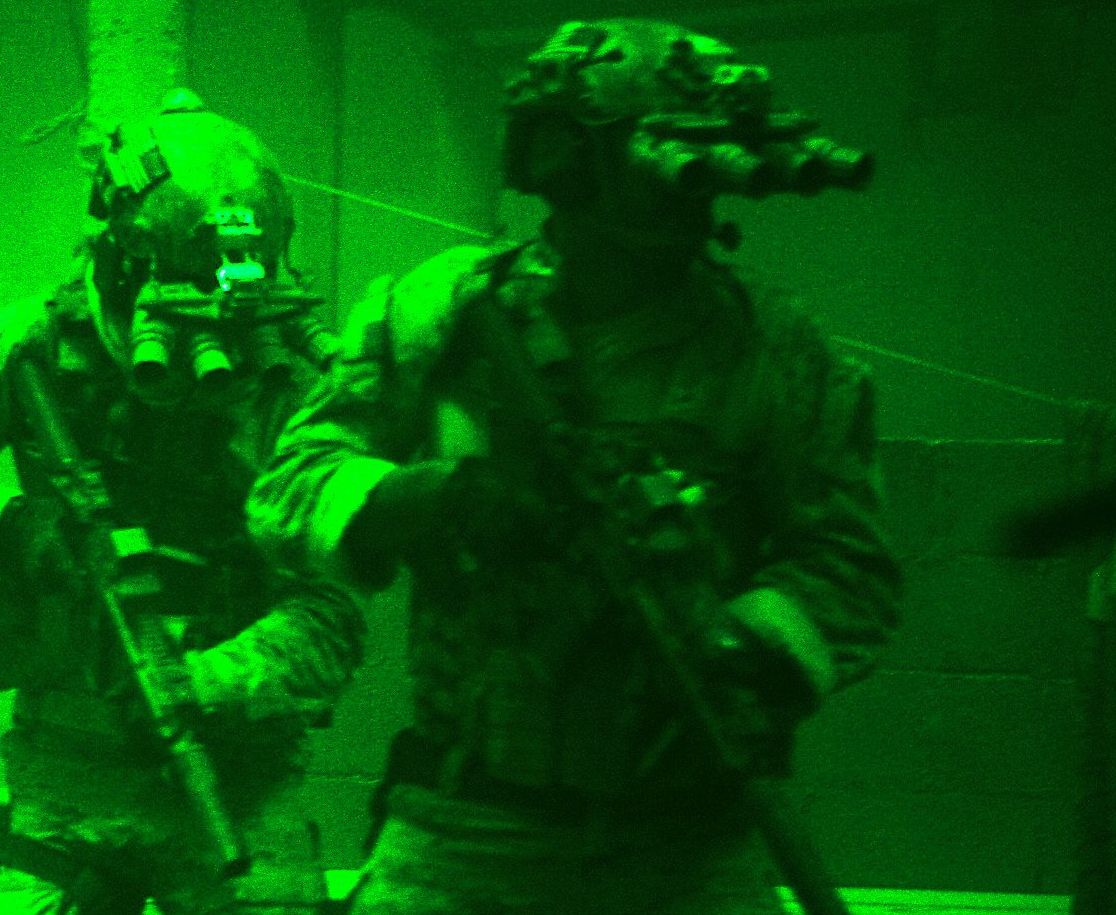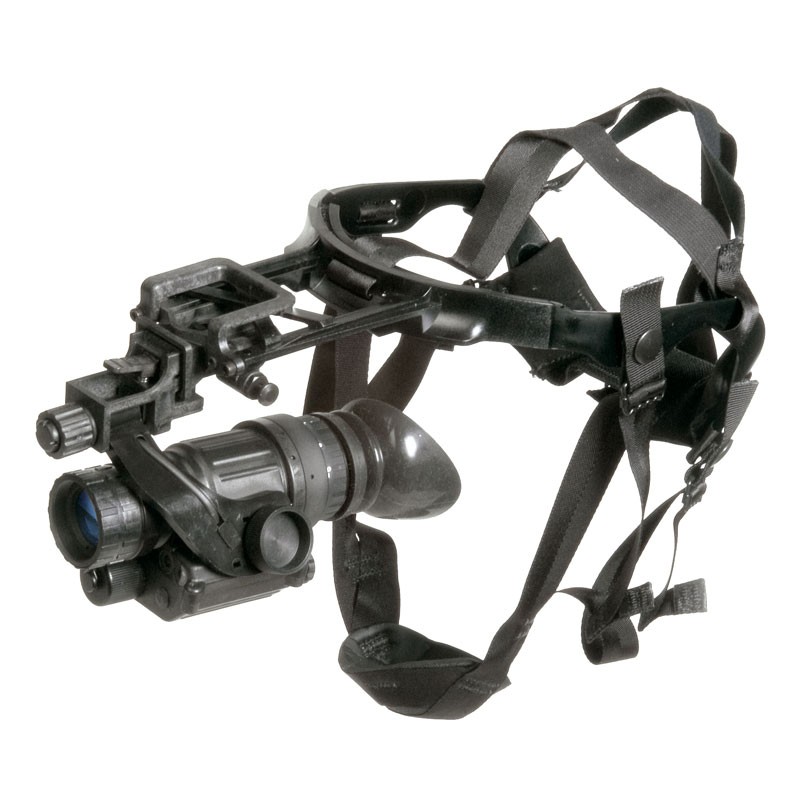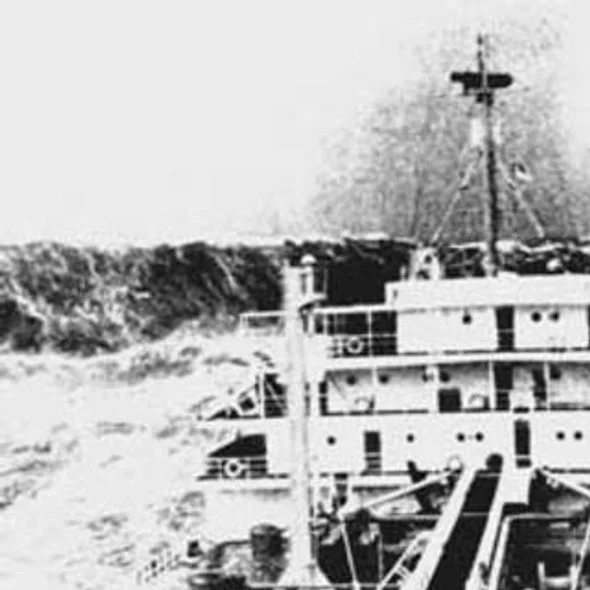I occasionally help crew other members' boats when they serve as the committee boat for Wednesday Night Races put on by the Annapolis Yacht Club. This is a great way to break up the week, as long as there is sufficient breeze to put on a racing series with perhaps 150 sailboats participating in many classes. It is fun to watch the many starts, the commanding report of a shotgun shooting blanks to start each class, and the seasoned hustle of a finely tuned race committee who take race management very seriously.
After the last start, we pull up anchor and make our way back to the club’s docks to offload the race committee, their flags and poles and signals, stop watches, clipboards, and duffle bags of gear. Usually we hang around to watch the exciting finish right in downtown Spa Creek. Over a beer and a burger, we then chat with the racers after they come in and put their boats away.
By the time we head home back to the owner’s dock, it is getting dark, and more than once we’ve needed a spotlight to pick up obtuse markers that show where a channel is. (The green “5” is particularly hard to see coming into Whitehall Creek as its green shape faces another direction.) Many of the larger boats are equipped with remote searchlights, while smaller boats usually carry handheld lanterns and flashlights.
More than once I bring along an alternative I found years ago at the Miami show. At the time, ITT Industries had a closet within their booth, and they would hand you a night vision monocular as you step inside the booth and they close the door behind you. In utter darkness, you switched on the night vision device and instantly see everything bright and clear, albeit with a green tint. I was so impressed I bought their model 6015 monocular. (I don't recall seeing the company display again at Miami, which I assumed was a shift in focus to supply the military with the PVS-14 for all of the military actions around the world. Today the PVS-14/6015 monocular is sold by ATN Corporation.)
We've all seen images of our special forces using night vision in their clandestine activities.
But no worries, this and other night vision products are available everywhere, sold through sporting goods, hunting and optic retailers, and Amazon. Prices range from cheap knockoffs and Russian first generation gear for under $100 to the much more pricey units for several thousands dollars that use the latest generation of night vision technology. A quick check of B&H Photo in NYC shows a number of highly-rated Bushnell night vision products for around $250.
This Bushnell Equinox monocular is about $200 from B&H Photo and rates very well with people who bought it.
I have to say I gladly use this monocular whenever I need to see in the dark. While I’m a big fan of powerful flashlights, I much prefer using night vision for operating a boat in the dark when I need to navigate on the water. My 6015 monocular came with a head harness, and I wear it over one eye and have my other eye available to see electronic displays and depth sounder. I can maintain full situational awareness with this set up.
My ITT 6015 monocular came with a harness for secure, hands-free operation, perfect for use on a boat at night.
When I used to take Growler down to Zimmerman Marine at the end of the season, I would begin the trip before dawn to get a jump on the day so as to arrive in Mobjack Bay before the yard guys quit for the day. Running Growler out of Whitehall Bay and down Chesapeake Bay for an hour or so in darkness at 15 knots is the slickest way to drive a boat when you are alone on the water. I could see everything clearly, crab pot floats, anchored ships, channel buoys, navaids and all. There is no fear factor with such technology.
I've taken my monocular with me on many ocean passages, and there is nothing quite like spreading out flat on a foredeck or in the cockpit and gazing up at the stars. Billions and billions of pinpoints of starlight. And looking down from the pilothouse deck into the water reveals surprising sea life activity at night.
A clear sky offshore is an amazing sight. With night vision, it even more spectacular, and very, very humbling.
It’s always fun to show friends night vision for the first time. Their reaction is priceless. Which is why I am surprised more cruisers don't have them aboard. And my unit came with an adapter to attach it to a camera lens for night photography. The thermal imaging devices from FLIR represent another brilliant product line.
If you get a chance to try this technology, I highly recommend it. It might change how you operate your boat in the dark, or when you spend a night on the hook in a crowded anchorage and a squall comes through. A quick peak around your position is way more comforting than shining a bright light all around, which also ruins your night vision.
Have a great week.














